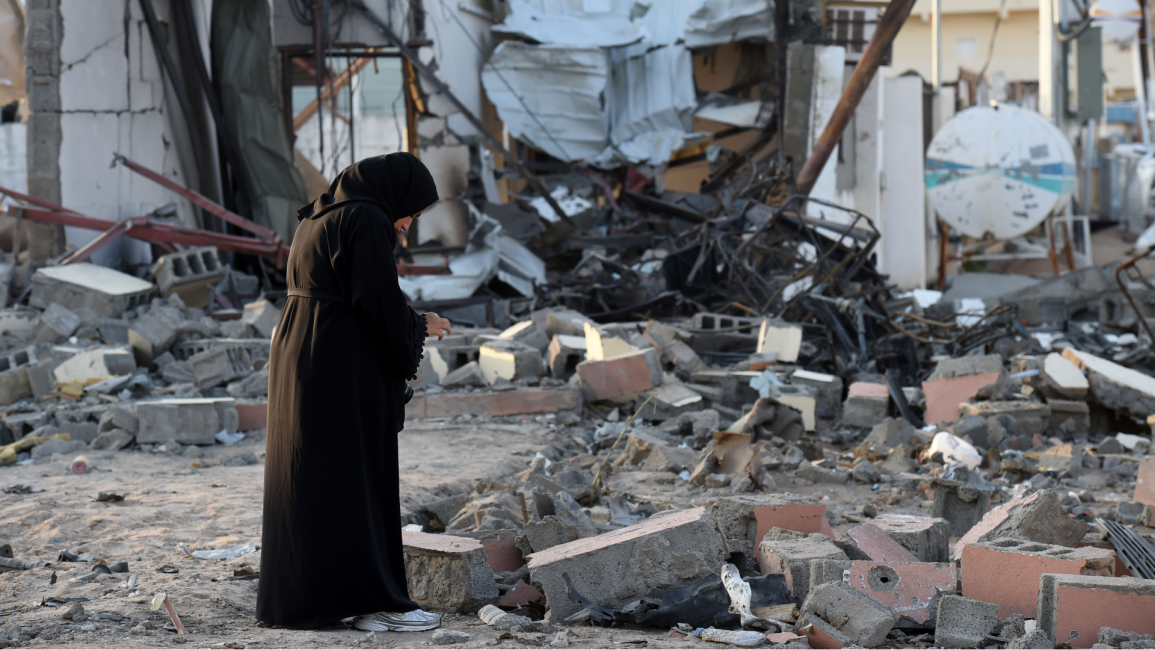The government and Houthi rebels blamed each other for the Friday night attack near Hodeida's airport, a frontline between their forces on the edge of the key Houthi-held port.
It came just two days after at least 26 people were killed in blasts that rocked the airport of the southern city of Aden as government ministers got off a plane.
In Hodeida, "the explosion struck at the entrance to a complex of several wedding halls", a witness told AFP, as a party was being held for a newly-married rebel supporter.
Local officials said five women were killed, and children were among seven others wounded, when what appeared to be an artillery shell hit the wedding venue.
General Sadek Douid, the government representative in a UN-sponsored joint commission overseeing a truce, condemned it as "an odious crime committed by the Houthis against civilians".
Hodeida's Houthi-appointed governor, Mohammed Ayache, said on Al-Masirah television, which is run by the Shia Muslim rebels, that "the forces of aggression never hesitate to blame others for their crimes".
Saudi-backed government forces launched an offensive in June 2018 to retake Hodeida, the main entry point for humanitarian aid to the Arab world's poorest country.
Humanitarian catastrophe
A ceasefire has been partially observed since December of that year.
On December 4, however, at least eight people were killed in bomb attacks on an industrial complex in Hodeida, a few days after the bombardment of residential areas that killed five children and three women.
Houthi military camps were targeted in air raids by the Saudi-led coalition backing the government, in retaliation for an attack on a Saudi oil tanker that was blamed on the rebels.
In the face of the highly volatile situation, Yemen's new power-sharing government vowed on Thursday to restore stability, a day after the deadly blasts on the airport tarmac in Aden, the south's main city.
All cabinet members were reported to be unharmed, in what some ministers charged was an attack by the Houthi rebels, who have controlled the capital Sanaa since 2014 September and are based in northern Yemen.
Foreign Minister Ahmed bin Mubarak told AFP that the new government was up to tackling the challenges facing Yemen.
"The government is determined to fulfil its duty and work to restore stability," he said. "This terrorist attack will not deter it."
The new government includes supporters of the secessionist Southern Transitional Council, as well as other parties.
While all in the new government oppose the Houthi rebels, they are deeply divided, and secessionists and forces loyal to the central government have sporadically clashed in and around Aden.
Tens of thousands of people, mostly civilians, have been killed and millions displaced in Yemen's grinding six-year war, which has triggered what the United Nations calls the world's worst humanitarian disaster.
Follow us on Facebook, Twitter and Instagram to stay connected


![President Pezeshkian has denounced Israel's attacks on Lebanon [Getty]](/sites/default/files/styles/image_684x385/public/2173482924.jpeg?h=a5f2f23a&itok=q3evVtko)



 Follow the Middle East's top stories in English at The New Arab on Google News
Follow the Middle East's top stories in English at The New Arab on Google News


